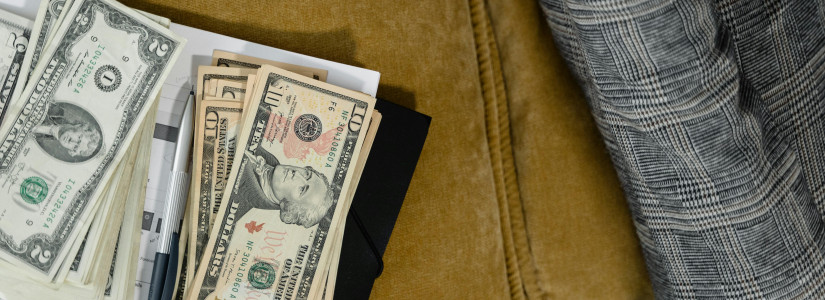Americans Leave Millions at Airport Security Checkpoints: The Hidden Treasure of Unclaimed Cash

Every year, travelers inadvertently leave behind millions of dollars in loose change at airport security checkpoints across the United States.
In 2023 alone, the Transportation Security Administration (TSA) reported collecting over $1 million in unclaimed money.
This accumulation of abandoned coins highlights not just a quirk of modern travel but also a growing conversation about the relevance and utility of pennies in our economy.
Don't miss: The State By State Guide To Unclaimed Assets
TSA Collections and Public Awareness
When passengers pass through security, they often forget to retrieve the small change left in bins. Pennies, nickels, dimes, and quarters pile up, indicating that many travelers view these coins as negligible.
The TSA collects this money and deposits it into a special fund that contributes to aviation security initiatives, ensuring the unclaimed cash serves a beneficial purpose.
The Financial Burden of Pennies
The cost of producing pennies has been a topic of debate for years.
According to the U.S. Mint, it costs approximately 2.1 cents to produce a single penny, making it a financially inefficient coin.
This discrepancy between production cost and face value has fueled arguments for eliminating the penny.
Advocates for this change suggest that discontinuing the penny could save the government millions of dollars annually, funds that could be redirected to other public services or government benefits.
Government Benefits and Financial Implications
Eliminating the penny could have broader financial implications, including potential benefits for government budgets.
By phasing out the penny, the U.S. government could reallocate resources to essential services and benefits. For example, funds saved from penny production could enhance programs like:
- Supplemental Nutrition Assistance Program (SNAP): Providing food assistance to low-income families.
- Medicaid: Offering healthcare coverage for eligible low-income individuals and families.
- Temporary Assistance for Needy Families (TANF): Providing financial support to families with dependent children.
The TSA's collection of unclaimed change has grown significantly over the years.
According to recent statistics, the U.S. Mint produced over 7 billion pennies in 2022.
With the production cost exceeding the coin's value, the financial loss is substantial. Furthermore, a survey by the National Association of Convenience Stores found that 55% of consumers do not use pennies regularly, and many support the idea of rounding transactions to the nearest nickel.
The Hidden Value of Unclaimed Cash
The accumulation of unclaimed change at airport security checkpoints reveals a hidden treasure trove of value.
This phenomenon underscores how small, seemingly insignificant amounts of money can add up to substantial sums over time. It also suggests that many Americans view low-denomination coins as disposable, further supporting the argument for discontinuing the penny.
The Penny Debate: Pros and Cons
Proponents of eliminating the penny argue that it would streamline cash transactions and reduce the burden on the U.S. Mint. Retailers would no longer need to handle large quantities of pennies, potentially speeding up transactions and reducing cash handling costs.
Read: 7 Places to Look for Unclaimed Cash
Additionally, rounding prices to the nearest nickel is unlikely to have a significant impact on overall pricing, given that rounding would balance out over multiple transactions.
Opponents, however, cite sentimental value and concerns about price rounding disadvantaging consumers.
They argue that eliminating the penny could lead to minor but cumulative price increases, affecting consumers, particularly those who rely on cash transactions.
Conclusion
The substantial amount of unclaimed change left at airport security checkpoints highlights the diminishing role of pennies in daily life.
Check this out: The Unclaimed Cash Waiting for You: How States Track Down Rightful Owners of Forgotten Funds
As the debate over the penny's future continues, the financial and practical implications become increasingly clear. Phasing out the penny could result in significant cost savings for the government and streamline currency use for consumers and businesses.
The funds saved could be redirected to enhance crucial government benefits, contributing to a more efficient and effective public service infrastructure.
As Americans increasingly leave behind small change, it prompts a reevaluation of the penny's place in modern currency.
The discussion continues, balancing tradition with practicality and financial efficiency.
The hidden treasure of unclaimed cash at airports might just be the catalyst needed to drive meaningful change in our currency system.
Related article: The Cash You Didn't Know You Had: Finding Unclaimed Assets In New Jersey












